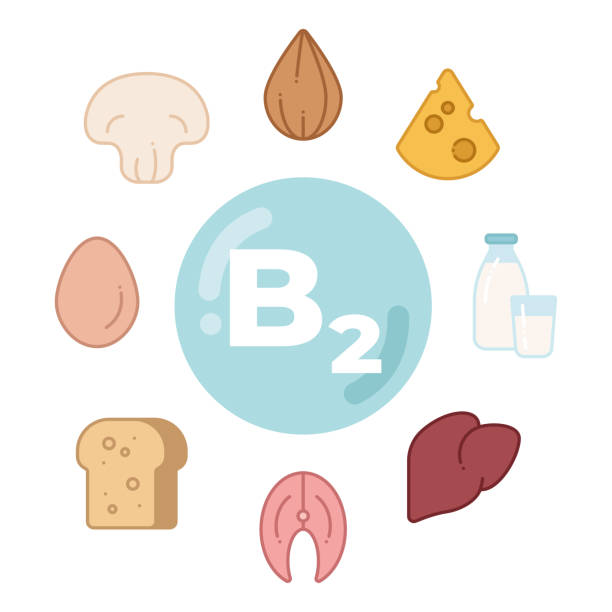Riboflavin, also known as vitamin B2, is a water-soluble vitamin that plays a crucial role in various metabolic processes in the body. Here is a detailed breakdown of riboflavin, including its recommended intakes, sources, dietary supplements, deficiency, health benefits, and potential health risks from excessive consumption.
1. Recommended Intakes:
– The recommended dietary allowance (RDA) for riboflavin varies depending on age, sex, and life stage. The following are the RDAs for different groups:
– Infants (0-6 months): 0.3 mg/day
– Infants (7-12 months): 0.4 mg/day
– Children (1-3 years): 0.5 mg/day
– Children (4-8 years): 0.6 mg/day
– Males (9-13 years): 0.9 mg/day
– Females (9-13 years): 0.9 mg/day
– Males (14 years and older): 1.3 mg/day
– Females (14 years and older): 1.1 mg/day
– Pregnant females: 1.4 mg/day
– Breastfeeding females: 1.6 mg/day
2. Sources of Riboflavin:
– Riboflavin is naturally present in various foods, including:
– Milk and dairy products
– Eggs
– Meat (such as beef, pork, and poultry)
– Fish
– Leafy green vegetables
– Whole grains
– Legumes
– Nuts and seeds
3. Dietary Supplements:
– Riboflavin is available in the form of dietary supplements, such as tablets, capsules, and liquid forms. These supplements can be used to meet the recommended intake of riboflavin, especially for individuals who have limited dietary sources or specific dietary restrictions.
4. Deficiency:
– Riboflavin deficiency is rare in developed countries, but it can occur in certain populations, such as alcoholics, individuals with malabsorption disorders, and those with poor dietary intake.
– Symptoms of riboflavin deficiency include:
– Cracks and sores around the corners of the mouth
– Inflammation of the tongue
– Skin rashes
– Eye and vision problems
– Fatigue and weakness

5. Health Benefits:
– Energy metabolism: Riboflavin is essential for the metabolism of carbohydrates, fats, and proteins, converting them into usable energy for the body.
– Antioxidant activity: Riboflavin acts as a cofactor for antioxidant enzymes, helping to protect cells from oxidative damage.
– Nervous system function: Riboflavin is involved in the production of neurotransmitters, which are essential for proper nervous system function.
– Red blood cell production: Riboflavin is necessary for the production of red blood cells, which carry oxygen throughout the body.
6. Health Risks from Excessive Consumption:
– Riboflavin is generally considered safe, and there are no known health risks associated with excessive consumption. The body excretes excess riboflavin through urine, so it is unlikely to reach toxic levels.
– However, high doses of riboflavin supplements may cause harmless yellow discoloration of urine.
In conclusion, riboflavin is an essential vitamin that plays a vital role in energy metabolism and nervous system function. It can be obtained from a variety of food sources, and dietary supplements are available for individuals who may have difficulty meeting the recommended intakes. Riboflavin deficiency is rare but can lead to various symptoms. Excessive consumption of riboflavin is generally safe, with no known health risks.

